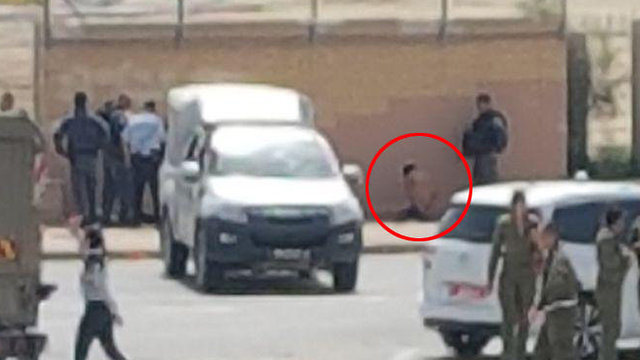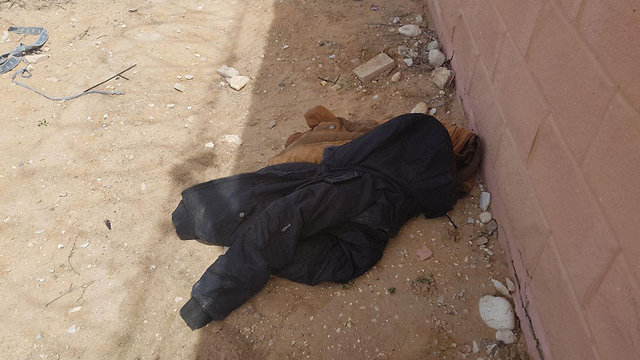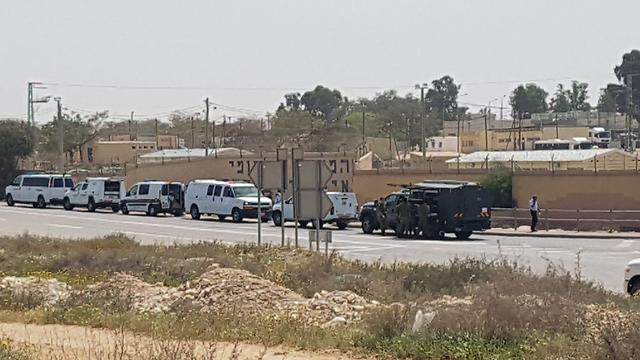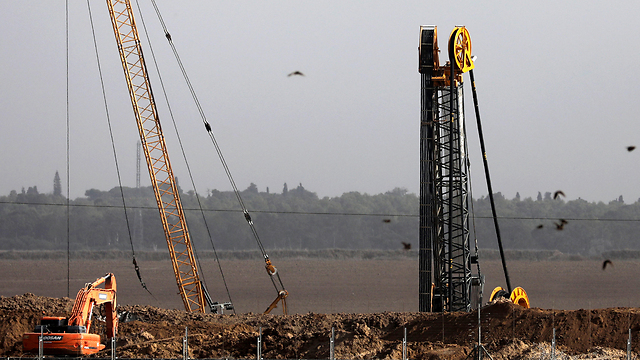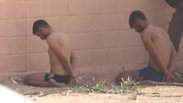
If infiltrators reached Tze'elim, they could have reached Tel Aviv too
Analysis: The three Palestinians who entered Israel from Gaza on Monday night likely wanted to get caught with weapons so they would be defined as terrorists and placed in an Israeli jail, where living conditions are better than in the strip; regardless of their motive, the entire incident points to a serious border protection failure.
Regardless of their motive, however, the entire incident points to a serious border protection failure.
This isn’t a new practice. In recent years, in the wake of the growing humanitarian distress in Gaza, quite a few young Gazans were captured on Israeli territory in possession of weapons they didn’t even try to use. Later, they explained they wanted to be arrested so they could spend a few years in the Israeli jail, where they are entitled to three meals a day and are given the option of studying.
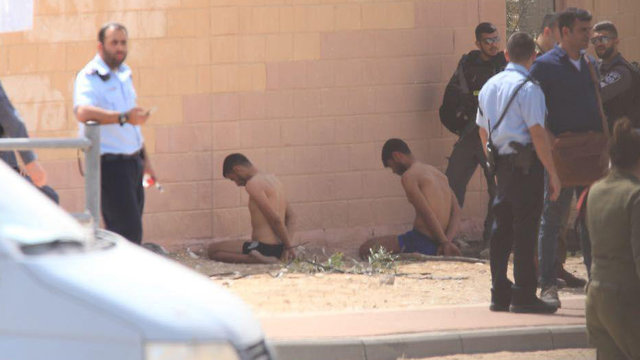
Gazans who were apprehended on Israeli territory in the past said they had carried weapons with them so that they would be recognized as terrorists rather than as illegal aliens. Illegal aliens are usually returned to the strip or to the Palestinian Authority territories in the West Bank, while Palestinians caught with weapons are considered terrorists and are jailed.
The three men who infiltrated Israel on Monday night likely had a similar intention. They are members of one family from the southern strip. In the five hours they spent in Israel before being caught, they could have carried out not one—but a few terror attacks. Even when they were discovered, they showed no resistance indicating their plan had been to get arrested and imprisoned in Israel so they could enjoy the human living conditions they lack in Gaza.
Another possibility is that the three infiltrators were sent by Hamas to undermine the Gaza vicinity residents’ sense of security and humiliate the IDF soldiers guarding the border fence. In other words, Hamas or Islamic Jihad, or a different Palestinian organization, tried to carry out a "perceptual attack" which Israel would respond to in a relatively moderate manner, rather than a "kinetic attack"—a terror attack which physically targets people and is met with a much stronger Israeli military response, particularly at a time when Israel is determined to maintain its deterrence.
Serious border protection failure
Regardless of the infiltrators' motive, the incident points to a serious failure in protecting the border and residents of the Western Negev. This kind of infiltration must never happen, as it puts not only the southern residents in real danger, but all residents of the State of Israel. A terrorist capable of reaching Tze'elim could reach Tel Aviv as well quite easily, within several hours. Three grenades and knife have the same deadly potential as a large explosive device. It's important, therefore, to investigate how this happened and what led to the failure.
The Shin Bet and IDF are still interrogating the three terrorists, but we can already conclude that before infiltrating Israel, they had observed the border fence for quite a long time in the area northwest of Rafah. Eventually, they likely discovered a hole created by rainwater in the ground below the border fence or a place where the fence itself had been damaged by the weather.
The small bolt cutters that were found in their possession are usually used by electricians and are capable of cutting a relatively thin barbed-wire fence. Only one cut wire was found in the breach they had crossed, but it was apparently created a big enough hole for an adult to pass through it.
The army had receive a warning from the fence, and forces were dispatched to the area shortly before dawn, but the fighters failed to detect the infiltration either because the indication provided by the fence was far from the breach or because the breach was too small and they didn't see it.
Another factor that made it difficult to spot the infiltrators was the heavy fog in the Gaza area that night. Terror organizations often focus their infiltration efforts on such foggy nights, when the IDF's observation and fence monitoring devices face difficulties detecting people approaching the fence until they are actually on it.
The question that must be answered by the IDF is whether the fence was thoroughly checked by the force that was alerted to the fence after receiving the warning. Quite often, the fence transmits warnings as a result of a strong wind or animals touching the fence, and sometimes the terror organizations try to test the forces' alertness by throwing stones at the fence.
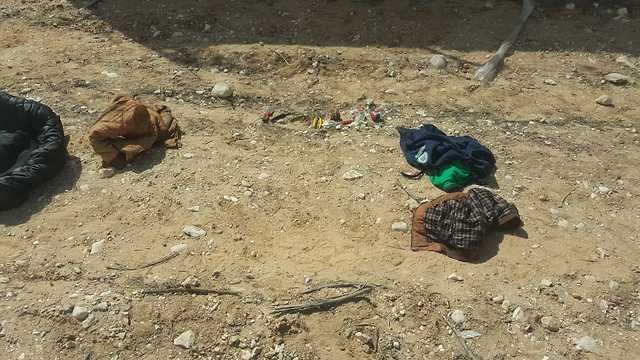
An obstacle aimed at blocking any infiltration attempt above and under the ground is being built on the Gaza border these days. Several kilometers of the defensive wall and fence have already been built. In the segments which have yet to be completed, Gazans can still infiltrate Israel pretty easily, although the system is capable of detecting such infiltrations relatively quickly and catching the infiltrators.
Monday night's infiltration was detected more than three hours after it happened. But as soon as it was detected by an IDF tracker who spotted footprints, the forces were alerted and the terrorists were tracked down relatively fast—especially in light of the fact that they made no effort to hide their tracks. Had they concealed their tracks, as Palestinian terrorists usually do, they would have likely reached central Israel by then.
Only last weekend, a Palestinian cell infiltrated Israel and attempted to sabotage heavy engineering equipment used for the construction of the underground anti-tunnel barrier. When they heard tanks approaching them, they escaped and returned to the strip through a breach in the fence.
That wasn't a random incident. Hamas is attempting to flex its muscles these days in a bid to enlist the Arab and international public opinion against Israel and help the organization overcome its isolation and the humanitarian crisis in the strip. The IDF is aware of that and should have increased its efforts to monitor the fence and prevent these kinds of infiltrations.
While it's true any military measure—defensive or offensive—can be overcome if you put enough effort into it, the fact that the three Palestinians managed to enter Israel so easily indicates that the Gaza border fence isn't properly blocked. In light of the upcoming events, the IDF should draw some conclusions and look into different measures to deal with this problem. Restoring the Gaza vicinity resident's sense of confidence is as important as the actual security.










